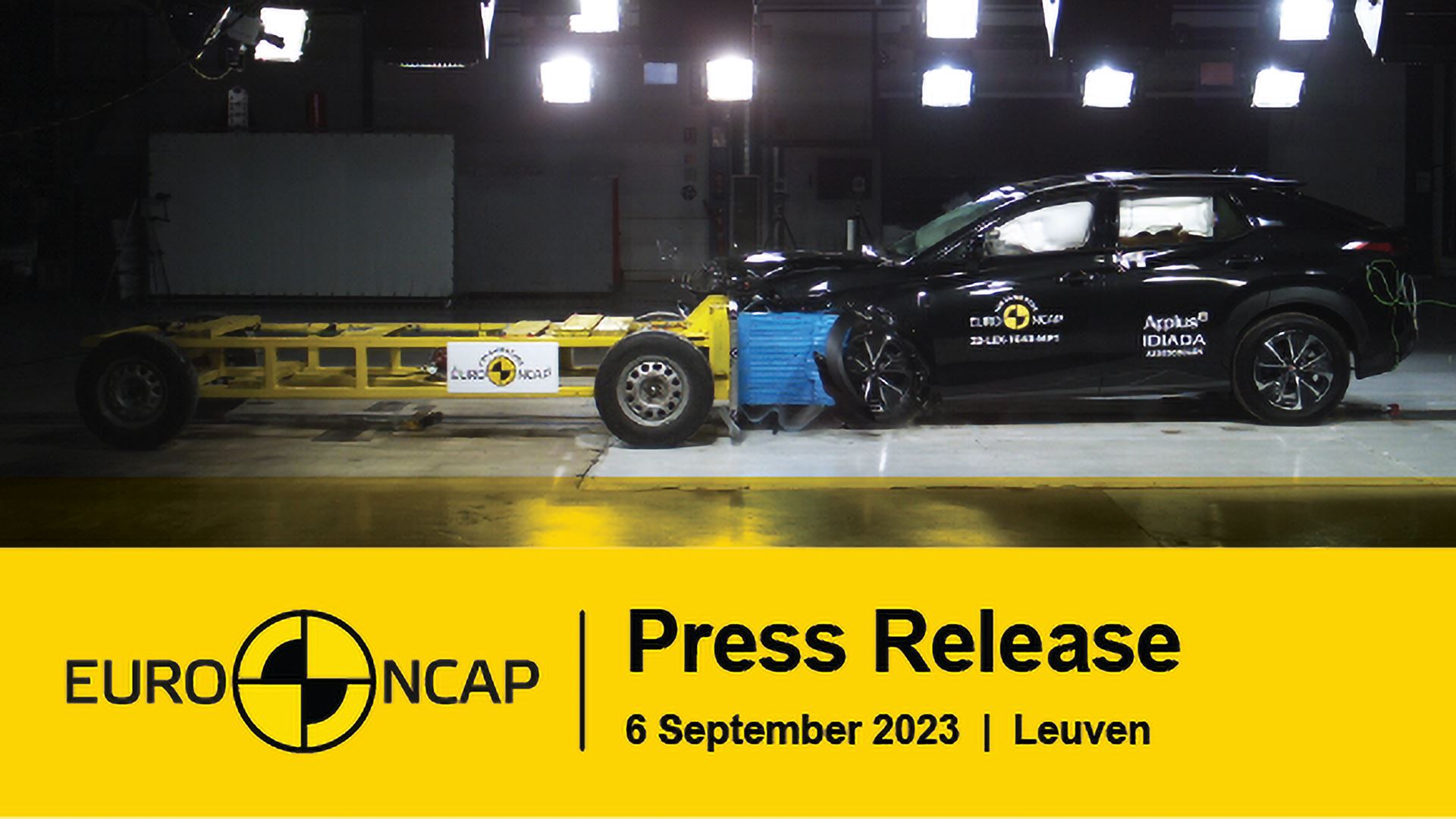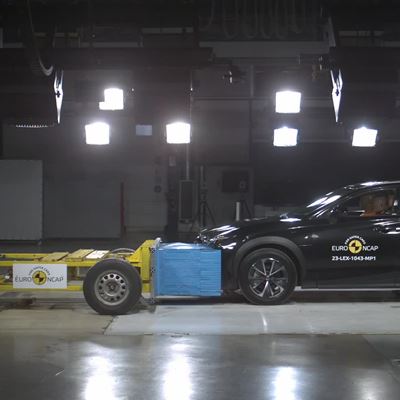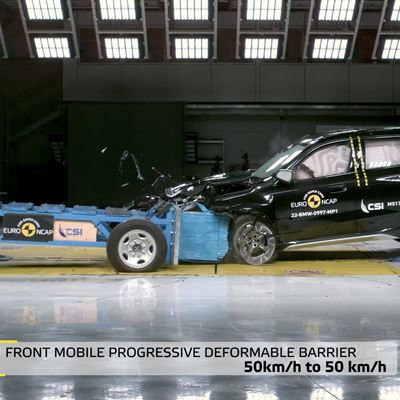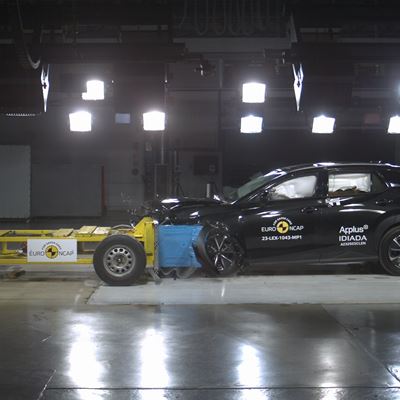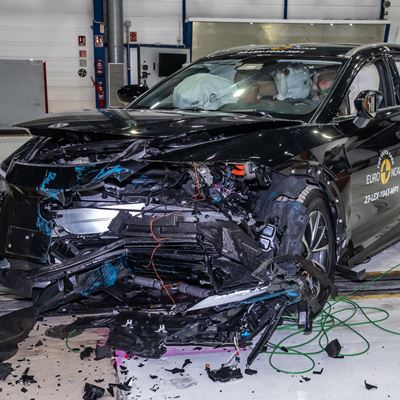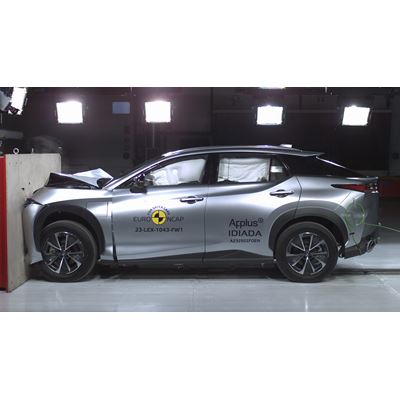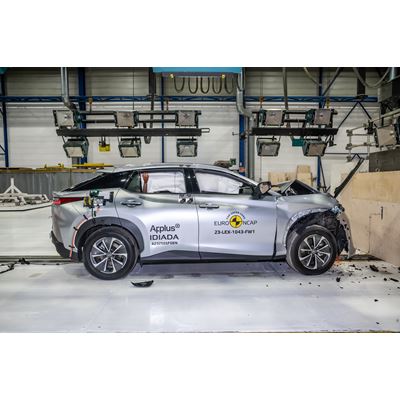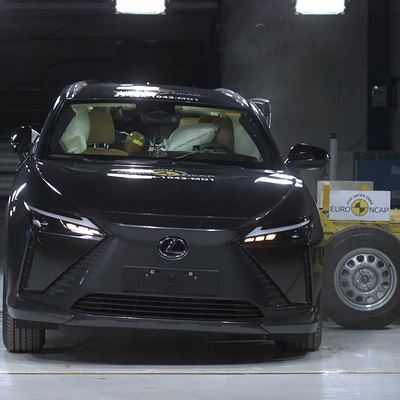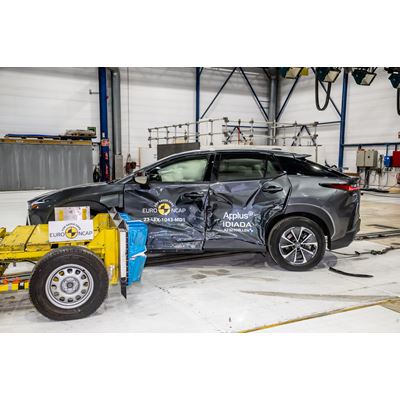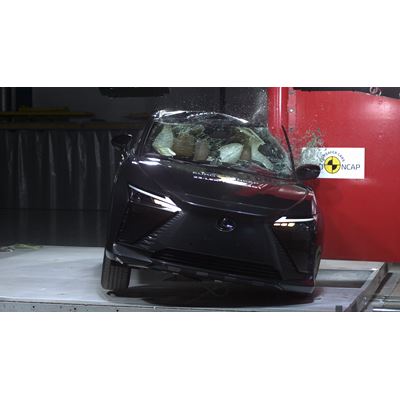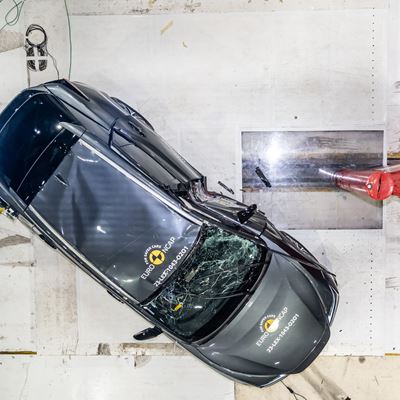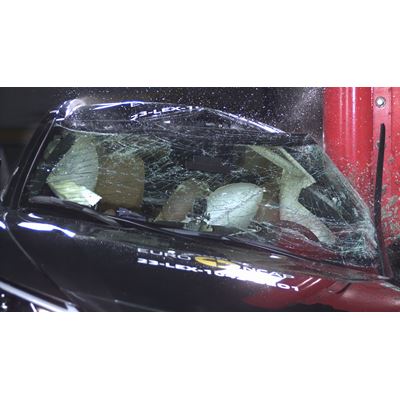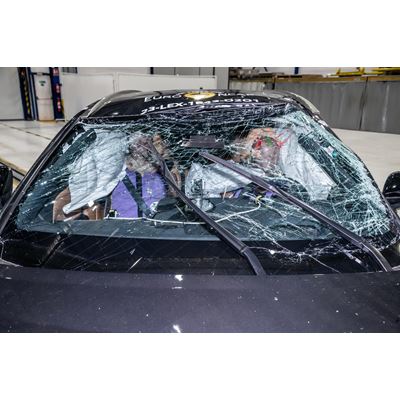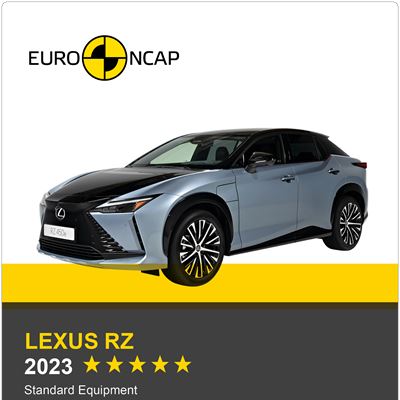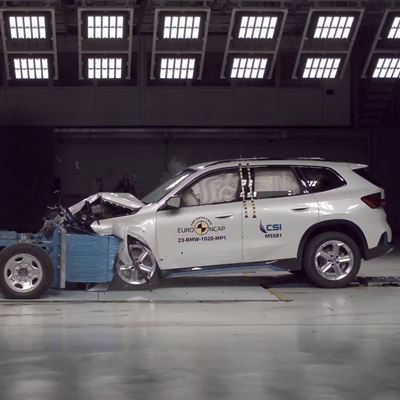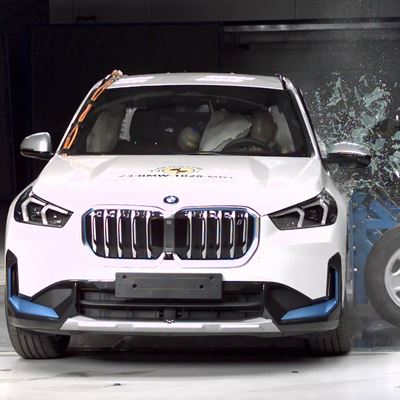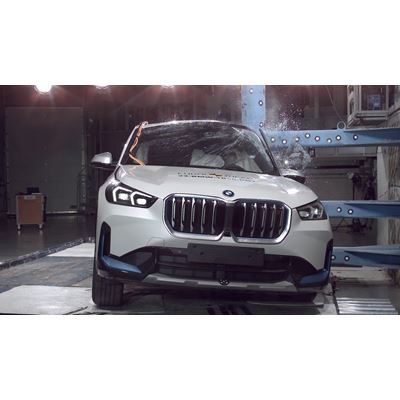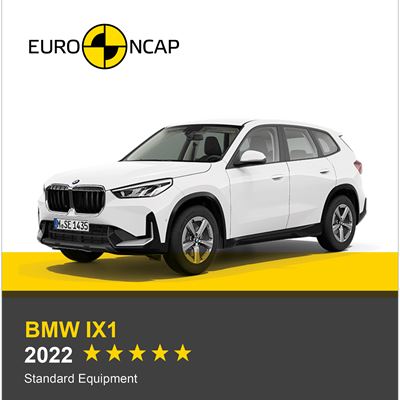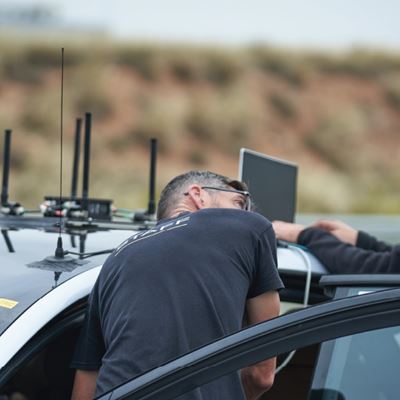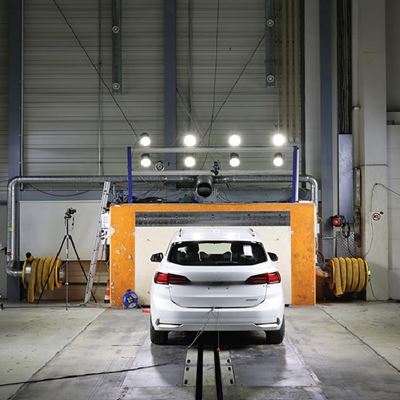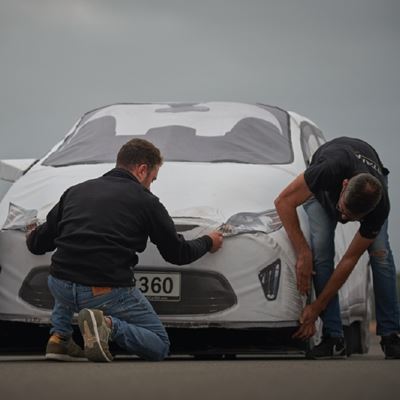Lexus Puts Safety Up-Front in All-New Electric RZ
The Lexus RZ is the luxury brand's first globally available all-electric executive model and the latest vehicle to be tested by Euro NCAP. The Lexus RZ meets Euro NCAP’s expectations for all-around good crash protection for occupants representing a range of ages, heights, and sizes. The car is also equipped with the latest crash avoidance systems and comes with several new active safety innovations. The RZ is the first car that Euro NCAP rewards for Child Presence Detection technology under the latest 2023 rating regime.
Crash protection remains the foundation of Euro NCAP’s safety rating. The Lexus RZ, which shares its platform with the earlier tested Toyota bZ4X and Subaru Solterra, performed well in full-scale crash tests and additional occupant protection evaluations, earning top marks in the side barrier test. However, in the full-width rigid barrier test, chest protection was rated as weak for the rear passenger, and, in the side pole test, dummy readings of rib compression indicated a marginal level of protection. More positively, to reduce the risk of occupant-to-occupant injuries in far-side crashes, the car also offers a standard centre airbag. The Lexus RZ is equipped with several onboard sensors that provide the latest legally required advanced driver-assistance system (ADAS) functions and impress in autonomous emergency braking track tests simulating critical emergency situations with other road users. New in the vehicle is the child presence detection system, which warns when a child or infant may have been left in the car and is consequently potentially lifesaving in hot weather. The system first issues an in-cabin reminder to check for a child when exiting the car and later switches on the vehicle hazard lights if it is likely that a child has been left in the vehicle. Finally, several improvements have been introduced to facilitate post-crash rescue, including an advanced eCall system, a multi-collision brake, and safeguards for passengers in the event of vehicle submergence.
Many of the advanced driver assistance systems (ADAS) fitted to the Lexus are now required by European legislation which came into force in July 2022 in recognition of the potential safety benefits of such technology. International data, particularly coming from the US shows that ADAS has the potential to prevent 62% of traffic deaths per year, depending on the technology and road type. Euro NCAP has been encouraging the fitment of such systems for a decade and, by now, its requirements for 5-star vehicles go beyond the new legislation. That the Lexus meets these requirements is a testament to the ongoing value and relevance of Euro NCAP’s safety rating, and the commitment of Toyota and other manufacturers to provide the highest levels of safety.
Nevertheless, the full potential of some ADAS technology remains unfulfilled, with a lack of standardisation across the industry and unnecessary activation leading to poor user acceptance and frustration for consumers. Euro NCAP does not currently examine ADAS in real-time driving conditions, so it is therefore stepping up its efforts to improve its evaluation of ADAS technology, together with manufacturers, including increasing emphasis on acceptance and intuitiveness. Already for 2024, immediate changes have been adopted in the way Lane Support Systems are being assessed, and more important updates are planned soon.
Safety solutions are rapidly developing, yet as much as it is a challenge to insist that manufacturers fit the latest safety technologies in new cars, maybe the real challenge lies in convincing consumers of their necessity. There is a worrying trend of media and social channels encouraging drivers ‘to turn them off!’ Euro NCAP is working closely with manufacturers to minimise ‘noise pollution’ in the cabin and the ‘more annoying’ features of these technologies. The organisation is determined to provide clearer information about the safety benefits of ADAS to European consumers. With the introduction of ADAS, the reality of zero accidents is an attainable possibility.Michiel van Ratingen, Secretary-General of Euro NCAP
Please note: Today, Euro NCAP also releases the results of the all-electric BMW iX1. This car shares the X1’s 2022 5-star rating, albeit with weaker protection of the chest in the side pole impact than the combustion-engined car originally tested.




